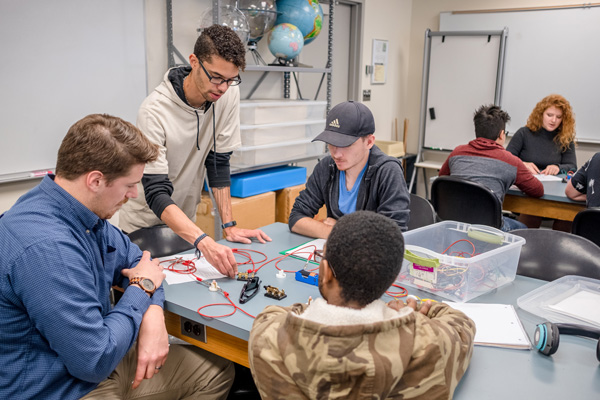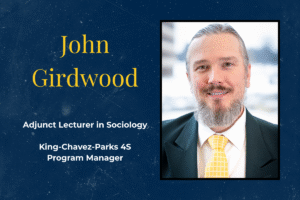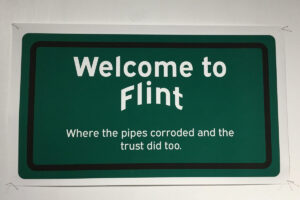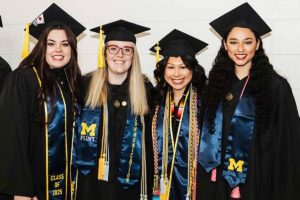CAS Student Ambassador April is a Communication Studies major exploring other fields of study offered by the College of Arts & Sciences. For this article, she sat down with Dr. James Alsup to learn more about the Physics program.
One of the first tasks of my day is pouring my morning coffee. It’s so routine I don’t even think twice about how it happens, let alone that physics plays a key role in getting the liquid boost to my ceramic cup every morning! We may not realize it, but physics is a part of our everyday lives. From the atoms that compose our genetic makeup, to the forces involved with moving cars, all the way to outer space, the art of physics plays a role in everything.
Physics is much more than meets the eye, or the atom, or the universe!
I got the unique opportunity to have a discussion with Dr. James Alsup, an associate professor at UM-Flint who researches High Energy Theory, Quantum Mechanics, and Black Holes within the physics program. Having never taken a physics class myself (not even in high school) I had a lot to learn from Dr. Alsup.
Physics contains a wide range of different specializations, from particle physics (dealing with electrons and photons) to cosmology, the study of the universe. Somewhere in the middle there is Biological Physics; which deals with radiation and nuclear medicine, Electricity and Magnetism; this is where much of engineering comes to play, and classical physics; which dives into how and why objects move. I know what you’re thinking; this all sounds extremely fascinating! Where can I learn more?
A great course for students to learn all about everything physics has to offer is First Year Experience: Tales From The Dark Side. This class challenges its students to be curious about the world around us. Students get to see a lot of different kinds of physics and even get their feet wet with some experiments and calculations! If interested in pursuing a career in Physics, there are many possibilities from which to choose. It’s typical for Physics majors to continue their education in graduate school. From there, they can decide what specialization is most interesting to them. Most graduates will go on to conduct groundbreaking research through studies and experiments.
Students, Faculty, and the Physics Luncheon
One of my favorite aspects Dr. Alsup about the Physics program was how connected they were. Once a month, students and faculty from the department come and have a “Physics Lunch” together, where they discuss current research and all things physics! This luncheon really stood out to me as a clear example of how dedicated and passionate everyone in the department is about learning and growing together. No student has ever been turned away the opportunity to expand further on different aspects of research. Although there may not be a specific class for each physics specialization, the program ensures students will get a taste of each subcategory. Upon beginning their capstones, students get the opportunity to work closely with professors on their final projects. Students have access to advanced scientific equipment to use for their research efforts. They are granted complete access to pursue whichever field of physics they please in their capstones. Dr. Alsup recalled one of his favorite pieces of research conducted with his students on the study of black holes. They closely reviewed the forces involved around two black holes that are stuck next to each other. Dr. Alsup explained to me that their research was closely correlated with planet formation!
What you need to know about the Physics program
If you’re passionately curious about the world and the forces within it, physics might just be the major for you! At the University of Michigan-Flint, you will be exposed to three major branches within physics: theoretical, experimental, and computational. The study of theoretical physics is the use of mathematics to make scientific predictions. Experimental Physics takes those predictions and tests them in the lab. The study of computational physics, as Dr. Alsup puts it, is “sort of its own thing.” To put it simply, it’s a combination of computer science, physics, and mathematics to solve complex problems. I know you must be jumping out of your seat, eager to get started, but there are a few things to be aware of before being a physics major. It is apparent that as a student you have a commitment to yourself, along with your classmates and professors, to learn and grow as a physicist. The physics program is no walk in the park and requires individuals who love the field, and want to be challenged inside and outside the classroom. Dr. Alsup shared that, “Being a little nerdy goes a long way in Physics.”






